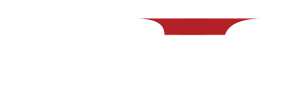Reapit has officially welcomed Smoke Alarm Testing Services (SATS) as the first compliance provider to integrate with the Console Cloud Marketplace – a move set to streamline compliance workflows for property managers across New Zealand and Australia.
“We’re excited to welcome Smoke Alarm Testing Services (SATS) as a key compliance integration partner within the Reapit partner ecosystem,” said Emily Hawkes, Head of Integration Partnerships at Reapit.
What the Console Cloud integration means for you
Our integration with Console Cloud means:
- Property, tenancy and tenant details sync seamlessly
- No manual data entry or chasing tenants
- Auto job creation – SATS can automatically create inspections required to stay compliant with state legislation.
- We manage all scheduling and communications
- Reports and invoices are delivered straight to Console
- You save time, reduce risk, and stay compliant
Why we integrated?
“Partnering with Reapit/Console lets us work more efficiently with the platforms our clients use every day. It reduces double-handling, speeds up scheduling, and ensures compliance deadlines are met.”
— Daniel Kramarzewski, SATS
Get started in minutes
If you use Console Cloud, enabling SATS is quick and simple. You’ll streamline your compliance process, stay ahead of legislation, and improve the experience for tenants and landlords alike.
Smoke alarm compliance shouldn’t be stressful – and now, it doesn’t have to be. With SATS and Console Cloud working together, keeping your properties compliant is just one less thing to worry about.
Read the Reapit Blog HERE!

